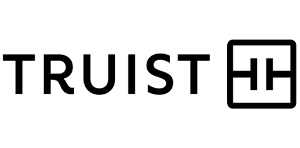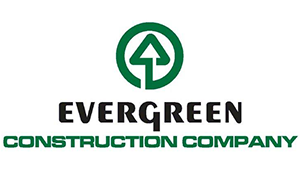Housing Policy Recommendations for North Carolina: Ensuring Housing Stability During and After the Coronavirus Crisis
On March 27. Congress enacted the Coronavirus Aid, Relief, and Economic Security Act (CARES Act) to address the on-going public health crisis and its economic turmoil. The inclusion of $12 billion towards housing and homelessness programs will undoubtedly assist millions of families and is a good first response. However, that relief will be temporary and misses some sectors of the housing continuum. Many of the housing affordability and financial security issues people are facing existed long before the on-set of the Coronavirus pandemic.
In North Carolina at least 510,000 people have applied for unemployment insurance since mid-March, an increase of nearly/more than 6,000%. While the duration of social distancing measures is unknown, additional resources will be and are needed in order to ensure people, especially the most vulnerable at the lowest incomes and those currently unhoused, are able to endure the crisis. The current economic shutdown is only beginning to show the chain reaction of impacts that will be felt for months to come. In order to ensure North Carolinians are able to recover physically and financially, the time for advocacy is now.
Priority 1: Local Government use of Federal Resources
- Urge Entitlement Communities to use CDBG for Rental/Mortgage Payment Assistance
The CARES Act included funding for housing in two specific ways — $4 billion in Emergency Solutions Grants targeted at homeless populations and $5 billion in Community Development Block Grant (CDBG), which is a more flexible source of funds. The CDBG funds will be deployed in three tranches to both state governments and directly to some local governments. While they provide greater flexibility to address local needs, local advocacy will be needed to ensure that those resources aid those most vulnerable to the health and financial impacts of COVID-19. CDBG funds can be used for a wide array of activities. Of particular interest for housing advocates and policymakers, is the ability to provide rental and mortgage payment assistance. CDBG guidelines allow state/local governments to make rental or mortgage payments “on behalf of” individuals. This type of assistance is vital to ensuring low-income renters and homeowners can remain in their homes and stay safe during the pandemic. For more about the use of CDBG visit the Coalition’s fact sheet.
Priority 2: State Level COVID-19 Response
- Increase North Carolina’s CDBG & ESG Infrastructure/Capacity
The CARES Act includes $5 billion in Community Development Block Grants (CDBG) and $4 billion in Emergency Solutions Grants (ESG) on top of what is normally appropriated. North Carolina expects to receive approximately $47.1 million in CDBG funds and $23.7 million in ESG with the first tranche of funding. While the monies are desperately needed, the state agency, or agencies, that will administer these funds will need the resources and staffing in order to ensure the timely roll-out of these programs across the state. The Coalition is working with the Governor’s office and relevant legislative committees. Stay tuned for an advocacy alert later this week/early next week. - Revive North Carolina’s Foreclosure Prevention Program
There is a coming wave of homeowners that are or will be struggling to pay mortgages along with other basic needs. Resources and services to help homeowners navigate potential financial solutions are critical to ensuring a wave of foreclosures similar to the 2008 recession are avoided and people can stay in their homes. North Carolina’s now-shuttered Foreclosure Prevention Fund helped more than 29,000 families hold on to their homes.A reincarnated Foreclosure Prevention program can provide housing counseling that assists homeowners in weighing their options and determining a course of action. Housing counselors are critical to helping homeowners navigate the complex web of financial and legal ramifications of defaulting on a mortgage. The Foreclosure Prevention Program also funded legal service providers to give legal advice and assistance to homeowners. Adding a global public health crisis will only add to the stress of the situation, making housing counselors and legal service providers even more crucial to keeping people housed.
- Increase funding to the Workforce Housing Loan Program (WHLP) and Housing Trust Fund
The Workforce Housing Loan Program and Housing Trust Fund are both important tools for the production of new and preservation of existing affordable housing. These funds leverage other federal funding sources. In the face of a potential economic crisis, it is more important that the construction of affordable housing continues, both for those who need housing and for the job opportunities created. Funding the WHLP at $20 million and increasing the state’s Housing Trust Fund will ensure NC continues to build housing and provide construction job opportunities to North Carolinians.
Priority 3: Future Federal Response
The North Carolina Housing Coalition in cooperation with the North Carolina Coalition to End Homelessness, the North Carolina Justice Center, and the Center for Responsible Lending developed the following priorities for an additional federal response package.
- COVID-19 Response for People Experiencing Homelessness:
- Provide additional increase of $11.5B in Emergency Solutions Grants (ESG) funds to support systems to meet CDC guidelines for shelters and unsheltered, create medical shelters for quarantine/isolation/respite, and operate housing stabilization programs with housing navigation, housing support services, and financial assistance including utilities and rental assistance and arrears;
- Institute a moratorium on sweeps of homeless encampments;
- Increase funding for Continuum of Care (CoC) funding for permanent supportive housing programs to shore up existing vouchers and to increase stock.
- Ensure those economically impacted by COVID-19 can remain in their homes:
- Institute a national, uniform moratorium on evictions and foreclosures to include housing that is not federally-assisted, as well as manufactured homes and communities;
- Expunge evictions executed during this crisis from civil records;
- Make a significant investment in emergency rental assistance and eviction prevention including housing choice vouchers and the ability to pay arrears, including rent on manufactured home lots;
- Provide emergency funds for public housing and HUD housing providers, including an increase in Public Housing Capital Funds;
- Increase funding for legal services and housing counseling agencies;
- Increase investments in the national Housing Trust Fund;
- Expand and reform Low-Income Housing Tax Credit (LIHTC);
- Create job opportunities by dramatically increasing resources for weatherization, urgent repair, and energy efficiency programs that improve the quality and safety of homes;
- Restart federal foreclosure prevention fund programs to come alongside North Carolina’s resurrected program.
- Mitigate the long term financial and housing impact on families:
- Create a credit facility at the Federal Reserve to ensure that mortgage loan servicers have the capital to meet their obligations under the forbearance provisions of the CARES Act;
- Offer 12 month forbearance for homeowners who do not have federally backed or subsidized mortgages, including a prohibition on assessing late fees, default interest, or interest on interest. Balances should not balloon during this period as a result of forbearance. When forbearance ends, borrowers should be offered affordable payment options and no lump sum demands should be permitted. For these privately held loans, the government should require and provide lender assistance.
- Clarify that mortgage loan servicers should follow CARES Act not previous GSE guidance on when it comes to processing requests for forbearance of mortgage payments;
- Suspend non-COVID related rulemaking; and
- Prohibit negative credit reporting in the midst of this crisis.
For more information on these recommendations, please contact Pamela Atwood, Director of Housing Policy for the NC Housing Coalition: patwood@nchousing.org or 336-520-0492.








